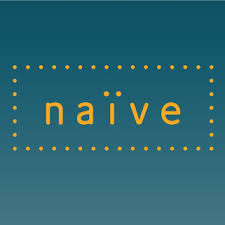记忆方法
1.【记】nai=奶,ve=壶,拿着个奶壶→天真的. nai (奶) + ve => 喝奶的人(小朋友)很天真。
2. native => naive.
2. native => naive.
中文词源
naive 天真的
来自法语naive,自然的,真实的,来自native,字母t脱落。通常作贬义使用。
英语词源
- naive
-
naive: see native
- naive (adj.)
- 1650s, "natural, simple, artless," from French naïve, fem. of naïf, from Old French naif "naive, natural, genuine; just born; foolish, innocent; unspoiled, unworked" (13c.), from Latin nativus "not artificial," also "native, rustic," literally "born, innate, natural" (see native (adj.)). Related: Naively.
权威例句
- 1. The drama takes an idealistic, even a naive view of the subject.
- 这部戏在对待这一主题上有些理想化,甚至是天真。
- 2. Her colourful oils and works on paper have a naive, dreamlike quality.
- 她那些色彩斑斓的油画与纸上作品给人一种天真、梦幻般的感觉。
- 3. The simple concepts he had been taught now sounded trite and naive.
- 他曾经被教导的简单观念如今听起来陈腐而幼稚。
- 4. Their view was that he had been politically naive.
- 他们认为他在政治上一直很幼稚。
- 5. He was touchingly naive about sex.
- 他对性幼稚得可怜。
